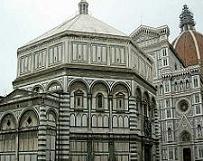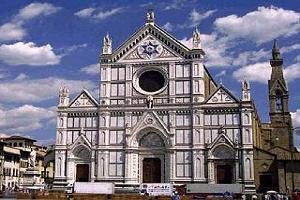After the huge rally which was held Saturday in Rome—organised by the main opposition party, the Democratic Party—to protest against the government of prime minister Silvio Berlusconi, it’s now up to students and teachers to stage mass demonstrations all over the country against the government.
Last Saturday the message was, in the words of PD leader Walter Veltroni, “Italy is much better than the right that is governing it now but another Italy is possible and we’ll do it together. Democracy, Mr prime minister, is not a company board.” Next Thursday, the day of the general strike of the school proclaimed by the unions, the slogan could sound “Italian teachers are much better than you, Mrs. education secretary. School is not dead wood to be axed.”
In fact, deep budget cuts (€7.8bn) over the next three years are exactly what the new young education secretary Mariastella Gelmini adopted in her recent decree. Yet, Gelmini’s education reforms are not just cutting expenses. There is the reintroduction of a system of “one class, one teacher” in elementary schools, namely each class would have one all-purpose instructor instead of three staff sharing teaching duties in different subjects for two classes. A questionable but “important” choice. There is the reintroduction of marks for conduct, which were abolished 10 years ago. A decision which was heartily welcome, as far as I know, by the vast majority of teachers in the face of an increasing number of hideous incidents of bullying. There are equally welcome measures aimed to let families save money on school books (see also Alex Roe’s Blog from Italy for more details on this and other aspects of Gelmini’s decree). Furthermore, Gelmini urged headmasters to promote the wearing of smocks. She is also considering the reintroduction of uniforms.
Yet, Famiglia Cristiana, a very popular Catholic weekly magazine, wrote in its latest issue, “We cannot define reform a simple cut of expenses.” Perhaps this sentence is too harsh, but the charge is not groundless. “In a country afflicted by the crisis,” wrote Famiglia Cristiana, “money is made available for Alitalia and banks: why not for schools?”
What the Catholic weekly magazine seems to forget is that, as the Guardian rightly notes in a very informative article,
The homeland of Maria Montessori spends more on its six- to 11-year-olds than the Organisation for Economic Cooperation and Development average. Cash gets a bit tighter in secondary education. But even there the average spending per student is £4,420, only fractionally below the OECD average.
And that the nub of the issue is instead that
the available resources are spent badly - or, rather, unproductively. About 97% of Italy's education budget is gobbled up by pay. Yet the teachers are not particularly well rewarded. In primary education, they get 78% of the OECD average (though they also work shorter hours: a basic 24 per week). The problem is that there are so many of them. Italy is a country of short teaching weeks, long school days and small classes, often in tiny schools.
But this, in turn, doesn’t mean that there will be people who will be thrown out of work. As a matter of fact the government stresses that the savings are to be made by not filling vacancies (which is not a good thing, however, for several thousands of young freelance teachers whose hopes of a career in education have been put off, at least, until 2012).
There is, however, a “sophisticated interpretation,” as the leftist Guardian maliciously puts it: “that Gelmini is building a bedrock of support from which she can demand greater resources for the more challenging task of reforming secondary education.” But the risk is that, continues the British daily newspaper, “with Italy once again heading back into a recession that will strain its public finances, the treasury will slam shut the coffers once the cuts have taken effect.” Unfortunately, this is not an unlikely scenario, in my opinion.
That’s also why even some right-wing supporters and allies of the ruling coalition led by Berlusconi—among whom the Northern League leader Umberto Bossi himself, with his superb political nose—balked at the decree when it was unveiled.
What is worst for Mrs. Gelmini and for the whole education system is that public opinion, rebus sic stantibus, could persuade itself to “throw out the baby with the bath water,” that is to say to get rid of the good of Gelmini’s “reform” along with the bad and/or highly questionable. That’s why the government would be doing a favor to both itself and the country by suspending or withdrawing the Gelmini decree. But I’m afraid it’s too late: it’s almost certain that the Senate will approve today the controversial decree.
----
UPDATE MARCH 29, 2008 - 12:29 pm
As widely predicted, Italian government won a few minutes ago final parliamentary approval for Mariastella Gelmini's education reforms. The Senate, the upper house of parliament, approved the decree by 162 votes for to 134 against with three abstentions.
“From today on,” said Valentina Aprea, chair of the Senate’s Cultural Commission, “we shall be busy enacting this decree together with Piano Gelmini to completely re-organise the educational system, to conform to European standards and those of OECD countries, taking up the challenge of re-grading public expenditure on education according to criteria of quality, efficiency and effectiveness.”
















